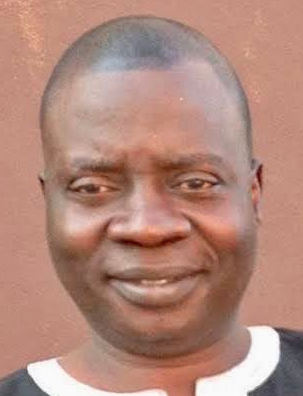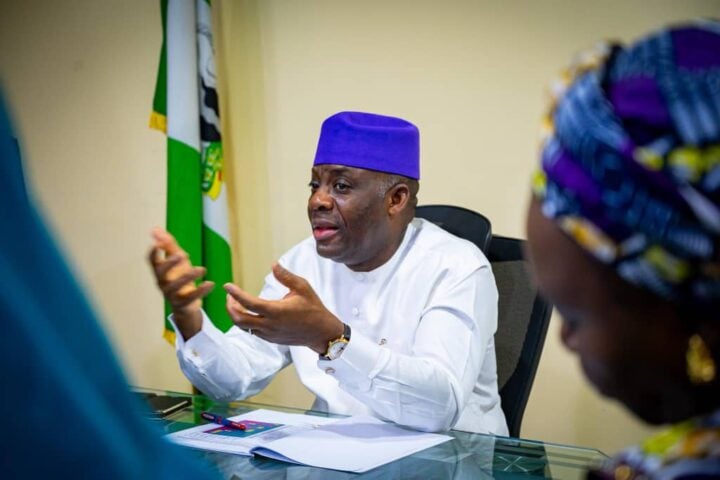Tunji Alausa
How the new policy of the Minister of Education destroys our heritage
One of the worst policies in the history of mankind was introduced in Nigeria a few days ago.
The Federal Ministry of Education led by Dr. Tunji Alausa, from Epe, Lagos State and a medical Doctor with speciality in Nephrology, the care for kidney, scrapped the existing national policy on Education which tends to promote indigenous language as means of primary education. While one appreciates the challenge of using one indigenous language in a plural society like Nigeria, it should be noted that for many years, experts have been working on developing indigenous languages that were robbed the privilege of well synchronized alphabets. Yoruba was not a means of education until around 1840 when it was first used as a means of teaching in a girls’ school in Sierra Leone after many years of research. There were earlier attempts to develop Yoruba language using Latin alphabets. At a time Arabic was explored before the current alphabet was adopted through the efforts of many scholars like Ajayi Crowther, the German, Sigismund WilheIm Koelle and others. Wilhelm published his work,Polyglotta Africana which contained over 280 words from over 200 languages in 1854. So, research and documentation of indigenous languages have never and should never stop. However, Alausa wants to put a seal on this great, historic enterprise. Few weeks ago, the Resource Centre for Human Rights and Civic Education, (CHRICED) and MacArthur Foundation launched the Heritage Centre located at the University of Abuja to in part, promote the culture, language and civilisations of Abuja Original Inhabitants, (AOIs) who owned and tilled the soil for over 1000 years before 1976 when the Nigerian Government by fiat, and at gun point, created Abuja after displacing the owners of the land. Now, a research centre has been built to revive their threatened language and culture. These are some of the noble ideas Alausa wishes to destroy.
His new policy says education of Nigerians will now be in English, it means we should not develop our indigenous languages given to us by God. He suggests we should adopt and sustain the language of our colonisers, out tormentors, the imperialists, those who enslaved, and in the process killed millions of African people. Alausa diminishes our history, our potentials, our science and our theory of knowledge.He kills our civilisation. Haba.
Advertisement
The Minister spoke at the Education International Conference, organised by the British Council. The policy was also approved at the National Council on Education held in Akure, Ondo State capital. This rubbished the renewed vigour, reiterated in 2022 to promote indigenous language as means of education. The decision came at a time Ghana, our neigbour instructed all teachers and institutions to use local languages as the main medium of instruction at the basic school level. The Ghana Education Minister, Haruna Iddrisu revealed the new Government policy on October 24 this year. He said ‘From today, teacher’s use of mother-tongue instruction is now compulsory in all Ghanian schools.’
What Nigeria did was an embarrassment to the culture and heritage of Africans and Nigerians, that have been sustained for more than 2000 years. Mr Alausa wants to wipe off thousands of years of our history with one stroke of the pen. The decision is not only anti-culture, it is destructive to the search for knowledge which is the groundnorm of education. His decision will kill indigenous science, music, art, the indigenous film industry and the creative energy tied to indigenous language. Once you discourage the teaching children in their mother tongue, you have taken away their self-confidence, their believe and trust in their culture, their history and their being and essence.
The position of the Minister contradicts all known researches on the link between learning, knowledge, and the importance of instructions to be implemented using indigenous language. Research by UNESCO and the World Bank for long has indicated that children taught in mother tongues are far more brilliant than those taught in foreign languages.
Advertisement
They learn faster and are more confident. The policy of using indigenous language as a means of education, is also about cultural empowerment. Education makes sense when learning is linked with identity. Similar steps have been taken in Tanzania, South Africa and Kenya to promote indigenous tongue as means of formal and informal learning.
Native language is not local knowledge but knowledge of the universal as interpreted in the local. Indigenous language is also an embodiment of indigenous science, mathematics, art, music, epistemology and philosophy.
Indigenous language embraces science, identities, values and spirituality; it speaks to the history of a people, interprets the network between visible and the invisible world, including cycle of time, space and events. For instance, Yoruba, Igbo, Kanuri, Zulu languages have native value of plants, animals, inanimate and animate things, matter and form. It is certain that the Minister is not current. He is not aware of the United Nations, (UN) Universal Declaration on the Rights of Indigenous People, UDRIP.
He is ignorant of the International Labour Convention, (ILO) 169 and the Convention on Biological Diversity, (CBD) all of which underline and mandated state parties to develop indigenous culture and language. Infact, it was this global reawakening that prompted the UN to declare the first International Decade on Indigenous Peoples and the subsequent creation of the Permanent Forum for Indigenous Peoples, which meets every year in New York, drawing over 500 representatives of Indigenous peoples from across the world. Right at the UN, delegates are allowed to speak their indigenous languages which experts then interpret to the audience. Alausa’s policy is not only assault on the United Nations, it represents a violent trampling on UN treaties and conventions some of which Nigeria is a signatory.
Advertisement
Apparently, the Minister does not realise that language is cultural identity. Language is intellectual heritage. It expresses each ethnic group’s interpretation of the world. There are between 5,000 and 7000 languages spoken on five continents. Nine countries account for 60 percent of the languages in the world. Out of this, about 2,500 languages face extinction. Research institutions across the world are working hard to revive language species that are threatened, encoraging state parties to develop and promote them, but Nigeria wants to destroy and extinguish those languages.
Language is the custodian of the ecosystem. Language also sustains historical continuity, common ancestry, cultural bounding. Children taught in local language perform better. Experiments among Aboriginal and Torrs, Nahua in Mexico and in Nigeria, where Professor Babatunde Fafunwa practically established that students taught in local langauges are more brilliant and excel than those taught using English. Fafunwa fought for the promotion of local language as means of learning until his last breath. I was opportune to be a member of the group he established which met periodically in Lagos dedicated to the promotion of local language as means of education. The Minister should be told in clear terms that his policy is not only reactionary but also revisionist.
The Ministry has no right to usurp the cultural sovereignty of indigenous people in Nigeria. Indigenous peoples are stakeholders in Nigeria. An individual has no right to decide what means of communication and education should be employed by educational institutions. No one should take such decisions without input from the owners of the language itself which is our intellectual property. The decision will have a chain of negative consequences. It raises questions about the future of several graduates of indigenous languages in Nigeria and the future of African language linguistic departments across Nigeria. It also undermines state policies.
Some states in Nigeria, like Lagos, already adopted indigenous language as mandatory for the teaching of pupils.
However, If not for the muddled political system in Nigeria, there is actually no need for the Federal Ministry of Education. Primary, secondary and University education, in a Federal Union, should be the affairs of each region. Years before the formation of the Nigerian Universities Commission, (NUC), each region was responsible for education curriculum from primary, secondary, up to the University level to the extent that the then University of Ife, had Twi as a language course in the language department for the promotion relationship between Ghana and Western Region and also a department dedicated to Atomic Energy, unlike now that the NUC has the odd monopoly of setting the hurdle for all the over 290 universities in Nigeria, a very odd and irresponsible norm in a truly Federal country. The decision of Alausa has again identified over concentration of power that has turned Nigeria into a garrison state as the greatest obstacle to self fulfillment of Nigerian stifled ethnic nations. For now, Nigerians should rise up to challenge and upturn this moribund and backward policy.
Advertisement
Adeoye, a journalist is former West African Regional Secretary, International Alliance on Indigenous and Tribal Peoples of the Tropical Forest, based in Thailand.
Advertisement
Views expressed by contributors are strictly personal and not of TheCable.


